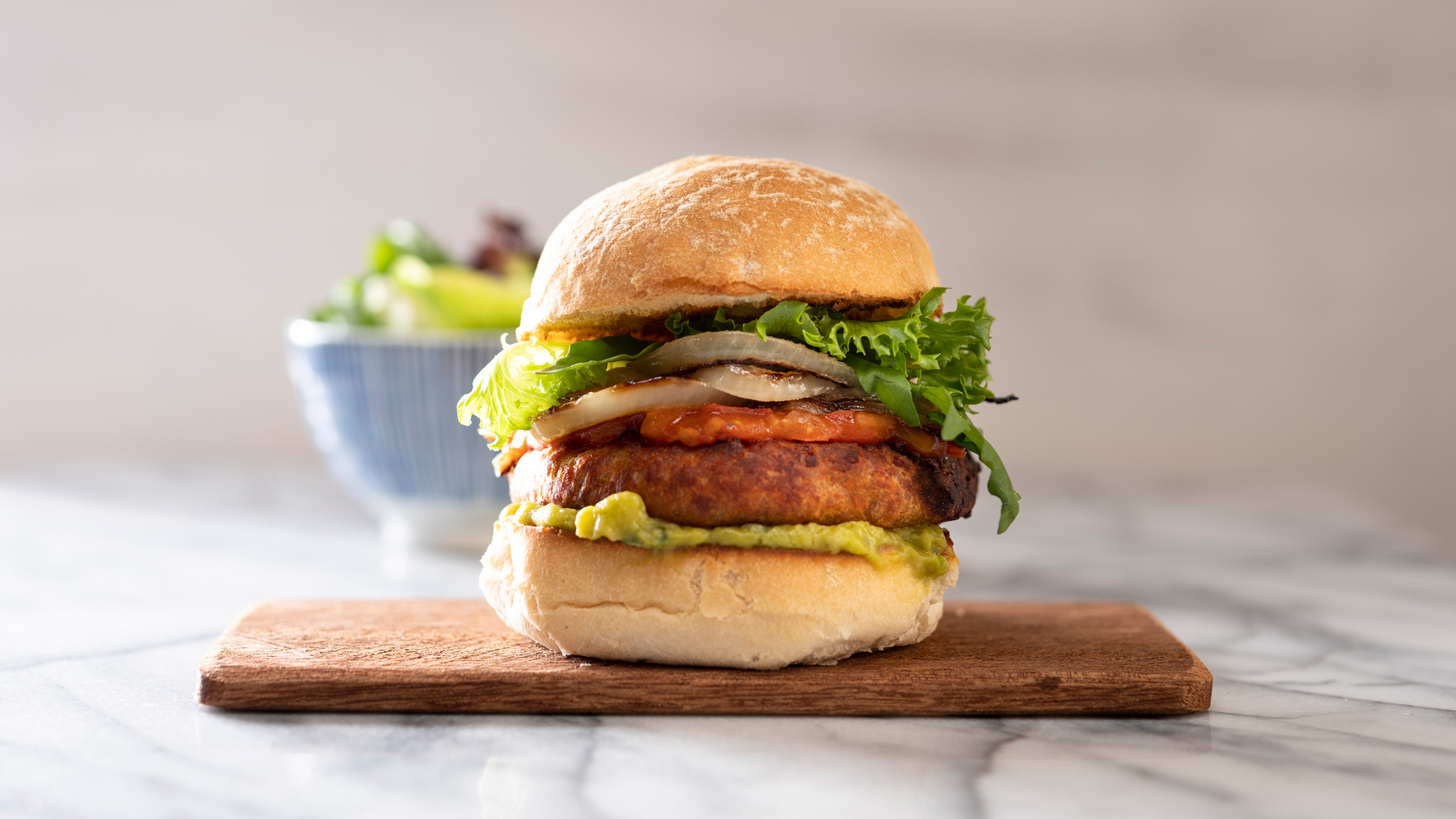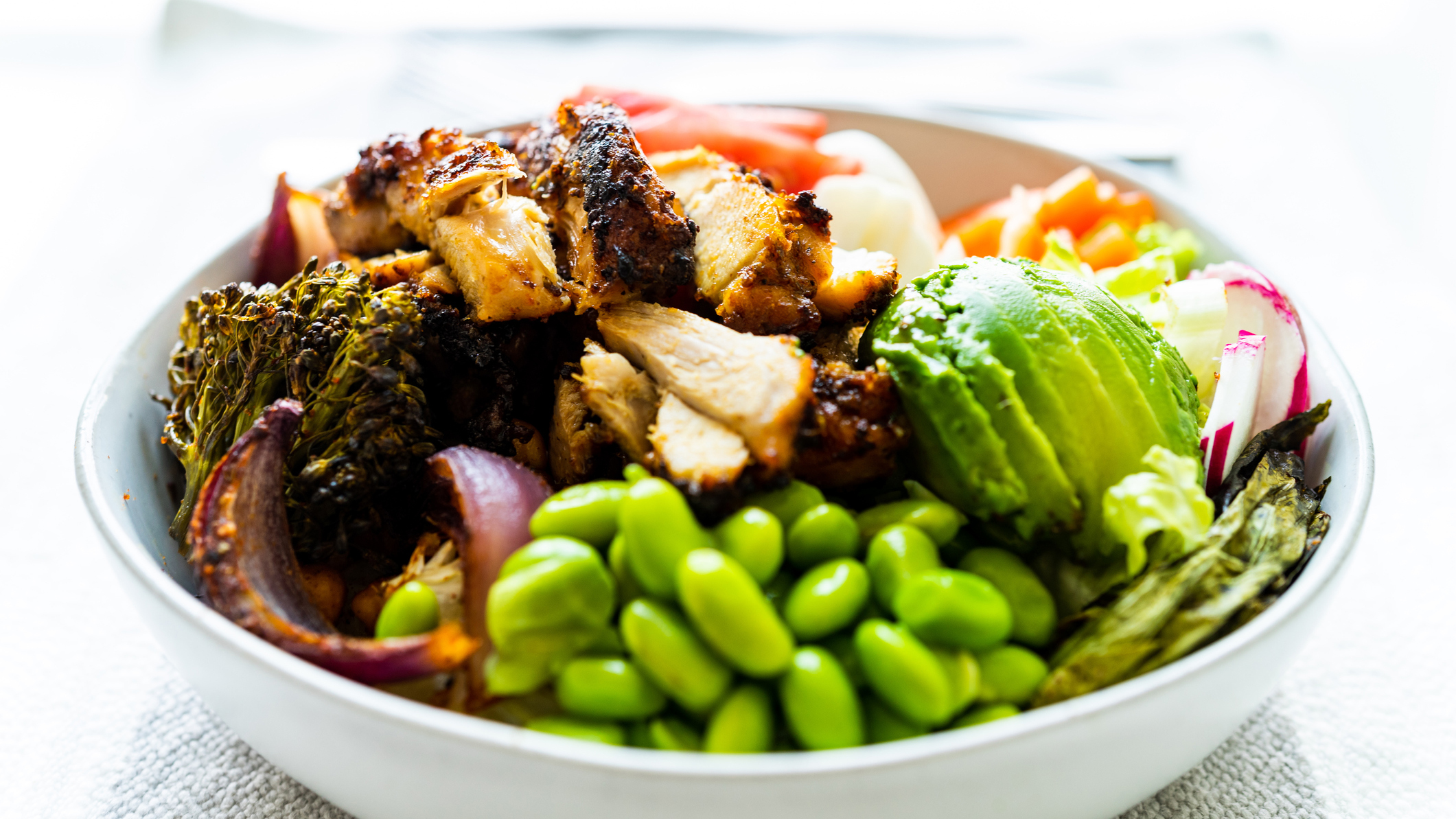Are vegan burgers healthier, and better for your heart, than the real thing?
Plant-based "fake meats" food consumption has doubled over 10 years. But are these vegan burgers really healthier?


Start your week with achievable workout ideas, health tips and wellbeing advice in your inbox.
You are now subscribed
Your newsletter sign-up was successful
Plant-based food has been in fashion for a long time. Vegetarian-only restaurants are springing up in big cities, organic farm-to-fork is big, supermarkets are awash with green labels, and being vegan no longer needs to mean sacrificing taste. You only have to look at our best vegan cookbooks guide to realise that.
In a new first-of-its-kind analysis, researchers from the London School of Hygiene & Tropical Medicine have found that alternative plant-based food consumption has doubled over 10 years. The research examined more than 15,000 people, finding that consumption of "plant-based milk, vegan sausages and vegetable burgers nearly doubled between 2008-2011 and 2017-2019".
Undoubtedly there's an environmental concern behind it, as the production of a Beyond burger, one of the most popular plant-based brands, is said to involve 90% less greenhouse gas emissions than the production of a conventional beef burger. However, is it really healthier for you?
Red meat, especially processed red meat, is thought to be carcinogenic according to the current science. Each daily 50g intake of processed red meat, such as sausages and burgers, is thought to increase your risk of coronary heart disease by up to 18%, according to Oxford University. Processed meat is also thought to be linked to some cancers.

Fake meats, on the other hand, were found to have lower instances of saturated fat and higher instances of dietary fibre than the real deal, which aids in digestional health and reduces the risk of heart disease. However, these plant-based products are still highly processed, with higher carbohydrate and added sugar content than a meat product. Sugar obviously contributes to obesity, which is a huge cause of cancer and heart disease.
So what to do? The boring, predictable answer, as usual, is that it's okay in moderation. Opting for plant-based "fake meats" isn't as desirable as opting for a freshly-prepared vegetarian meal using whole foods, or even (if you're not vegan or vegetarian) pairing healthy vegetables with a high-quality cut of red meat like steak, which is rich in iron, omega-3 and protein.
However, if you want to reduce your processed meat intake, you could opt for a Beyond burger the next time you see it on the menu. it'll be good for your heart, and the planet – just bear in mind you're eating a little less protein and a little more sugar, and adjust your diet accordingly.
Start your week with achievable workout ideas, health tips and wellbeing advice in your inbox.
Matt Evans is an experienced health and fitness journalist and is currently Fitness and Wellbeing Editor at TechRadar, covering all things exercise and nutrition on Fit&Well's tech-focused sister site. Matt originally discovered exercise through martial arts: he holds a black belt in Karate and remains a keen runner, gym-goer, and infrequent yogi. His top fitness tip? Stretch.
